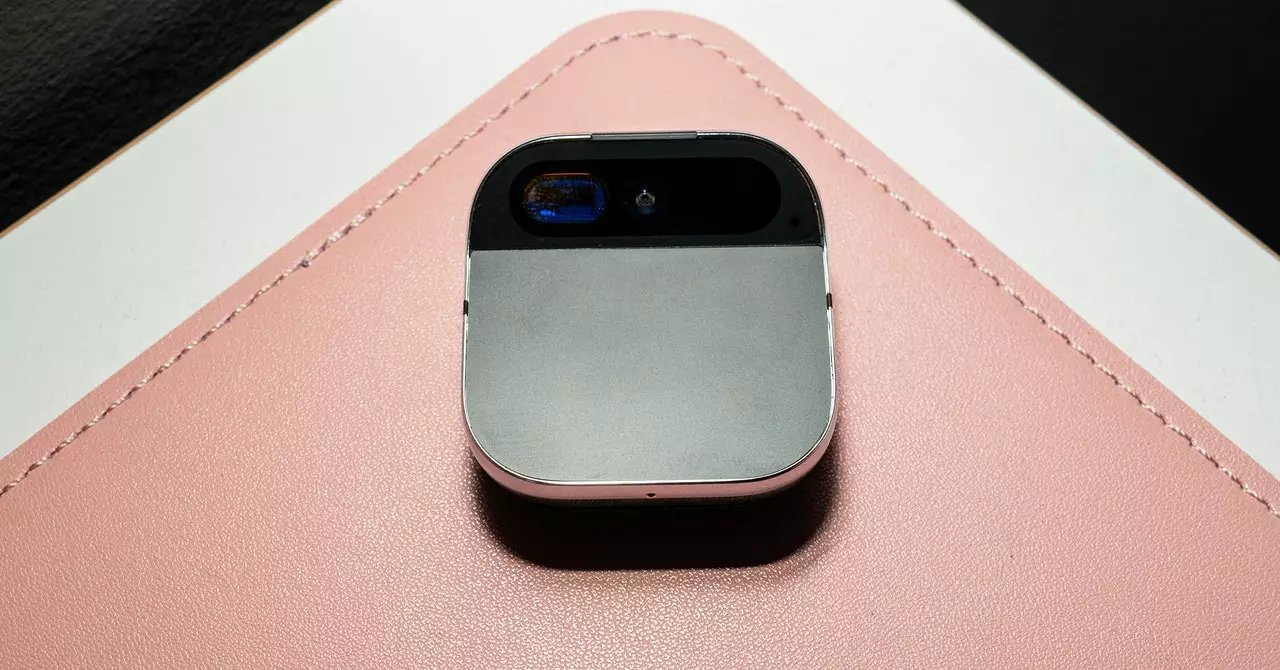The journey of the Humane Ai Pin captured the imaginations of tech enthusiasts around the globe. Launched in late 2023, this ambitious venture aimed to revolutionize the wearable technology landscape by fusing cutting-edge Artificial Intelligence (AI) capabilities with a sleek, compact design. The device, featuring a ChatGPT-powered assistant and the intriguing concept of a laser-projected display, was designed to serve as a smart alternative to conventional smartphones. Marketed as a “next big thing,” it set high expectations within Silicon Valley and beyond, with enthusiasts awaiting its debut with bated breath.
However, these lofty aspirations were short-lived. Despite the initial excitement, the reality of the Ai Pin began to diverge significantly from its promised potential. As it hit the shelves in early 2024, consumers were met with a barrage of criticisms across various platforms. The device quickly fell from grace as it was plagued by a slew of concerning performance issues, which led to the dawning realization that perhaps the hype had overshadowed practical functionality.
Perhaps the most telling sign of the Ai Pin’s failure was its alarming tendency to overheat. Users reported that the device could not withstand normal usage patterns without becoming excessively warm, raising questions about its construction and the engineering behind it. Furthermore, the AI assistant, rather than being a helpful companion, frequently hallucinated – a phenomenon where the AI generates nonsensical or erroneous information. This unintended behavior dramatically undermined user confidence in the product, especially for an innovation that sought to deliver seamless AI integration into everyday life.
Critiques also targeted the limited features of the Ai Pin and the disruptive nature of the projected display. Instead of enhancing user interaction, it often became a point of frustration. Such fundamental flaws hinted at potential oversights during development or a rushed production timeline, culminating in a product that was unable to meet even the most basic user expectations.
As 2024 progressed, it became evident that the Humane Ai Pin was destined for failure. The writing was on the wall when HP announced a $116 million acquisition of select assets from Humane, including over 300 patents, employees, and the Cosmos operating system, while simultaneously distancing themselves from the troubled hardware. As they pledged to channel the essence of Humane’s technology into their existing products, an underlying message resonated: the Ai Pin itself was not a viable product in the consumer market.
The decision to halt sales and issue refunds for recent purchases underscores a stark lesson for tech innovators: the imperatives of product testing and consumer feedback cannot be overstated. Launching a product with such fatal flaws often leads to irrevocable damage to a brand’s reputation – a lesson that the founders of Humane, Imran Chaudhri and Bethany Bongiorno, must now grapple with as they transition into their new roles at HP’s innovation lab.
In the wake of the Humane Ai Pin’s demise, HP’s focus on integrating Humane’s Cosmos operating system into its products holds promise, albeit with decidedly tempered expectations. It suggests a willingness to learn and adapt from past failures while steering clear of the pitfalls that led to the Ai Pin’s collapse. Whether HP can truly deliver on its goal to unlock new functionality through AI capabilities remains to be seen.
In an innovation-driven tech landscape, success is often determined by strategic foresight and execution; hindsight offers valuable lessons, but foresight is crucial. The vision for HP’s new innovation lab, HP IQ, endeavors to cultivate an ecosystem of intelligent features across its product range. As they look to enhance existing capabilities, consumers remain cautiously optimistic over whether HP can indeed rectify the frustrations traditionally associated with its products.
On a broader scale, the narrative surrounding the Humane Ai Pin serves as a poignant reminder of the challenges faced by tech startups in today’s fast-paced environment. With pressure to innovate, the hottest ideas can sometimes falter when subjected to the rigorous realities of user needs and technological limitations.
As the tech industry eagerly watches the evolution of AI and wearable technology, product failure stories like that of the Humane Ai Pin prompt meaningful discussions about consumer expectations, product usability, and the complexities underpinning technological advancement. For tech innovators, the challenge lies not only in having a vision but also in nurturing that vision into something practically usable and beneficial for the end user.
While the Humane Ai Pin has marked its unfortunate chapter in tech history, the lessons learned from its rise and fall will undoubtedly resonate throughout the industry. Ensuring that innovation is matched with practical execution remains the ultimate goal for those seeking to reshape the technological landscape.


Leave a Reply